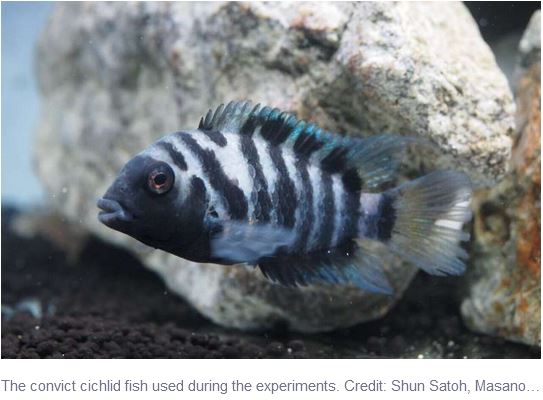




Cutest kitten in the world!
~E





Cutest kitten in the world!
~E
Posted in animal altruism, cats, dogs, God's creation

This is a truly amazing story about a very remarkable street dog in Istanbul, Turkey.
Benny, the dog, is a saint whose selflessness and compassion put we humans to shame.
~E
Posted in animal altruism, dogs, God's creation, Saints
Happy Friday!
DCG
Posted in animal altruism, God's creation

Morning Cat
By Samantha Cole
Motherboard December 6, 2021, 11:18am
One of our cats is sitting directly behind me as I type this, screaming at the back of my head for reasons that only he knows. When he’s bored with that, he’ll stalk our other cat like prey while she tries to use the litter box. He regularly makes guests uncomfortable with prolonged, almost alien eye contact. He is undoubtedly a demon, but according to the findings in a recently published study, he may also meet the description of a cat psychopath.
A team of researchers at the University of Liverpool and Liverpool John Moores University in the UK devised a survey for cat owners to find out if the hellions living with them fit the bill for cat psychopathy. They wrote a survey that includes questions like: “My cat vocalizes loudly (e.g., meows, yowls) for no apparent reason,” “My cat runs around the house for no apparent reason,” and “My cat does not appear to act guilty after misbehaving.”
The researchers used the answers to these questions given by 549 cat owners who completed the survey to create a new criteria for psychopathy in cats. They started with the “triarchic” concept of psychopathy, where levels of boldness, meanness, and disinhibition have been used to measure psychopathy in humans. These three traits also emerged as factors that lead toward a psychopathic cat, the researchers wrote, but two more factors also arose: human-unfriendliness and pet-unfriendliness. They named this new method of measuring psychopathic cats the Cat Triarchic Plus (CAT-Tri+).
“Our cats and the differences in their personalities inspired us to start this research,” Rebecca Evans, one of the researchers on the study, told Motherboard. “Personally, I am also interested in how owner perceptions of psychopathy in their cat can affect the cat-owner relationship. My cat (Gumball) scores relatively highly on the disinhibition scale—which means he can be quite vocal, proximity-seeking and excitable!”
Minna Lyons, another of the study’s authors, told Motherboard that they are all “crazy cat ladies” who among them study primates, rodents, and psychopathy in humans. “We decided to join our forces and see if psychopathy is something that is relevant in our feline friends too,” she said. “My personal inspiration is my cat Axel, a fluffy and greedy little creature.” Axel participated in a part of the study that assigned activity trackers to some cats, to watch how they move about their days. “Axel is totally bold, and known to go into neighbors’ houses, cars, and garages to search for food,” Lyons said—a sign of a feline psychopath.
All of this sounds like normal cat stuff, which the researchers told me may just be the case; it’s likely that all cats have an element of psychopathy, as humans understand it, they said, as these traits make good sense for their wild ancestors whose main goals were securing food, territory, and mates. They don’t make a lot of sense in a small Brooklyn apartment where kibbles are doled out on a schedule, so to us, zooming up walls and body slamming other pets seems unhinged.
~ Grif

Evening Cat
Posted in animal altruism, cats, Fun, Funnies, God's creation, Nature, Uncategorized
Tagged wildlife
God’s creatures are so much more magnificent than we give them credit for.
Thanks to the wide availability of surveillance cameras and video-capable cell phones, we now know so much more about non-human creatures than what ethologists tell us.
Not only do animals have empathy, they are altruistic. Some are downright heroic.
On September 5, 2021, Jaap Beets was in his farmhouse in Gelderland, Netherlands, when he heard a loud commotion coming from his livestock outside. (New York Post)
A bird of prey, a goshawk, had swooped down on a chicken, sending feathers flying in the air.
A rooster immediately rushed in to take on the hawk.
Then a goat, much bigger than the hawk, joined the battle to save the chicken.
The hawk flew away empty-taloned only a mere 17 seconds after swooping in.
Below is the astonishing video.
The courageous and noble rooster and goat put us humans to shame.
~E
This video made me weep.
And that’s why St. Bonaventure called them “creatures without sin”.
~E
Posted in animal altruism, cats, dogs, God's creation
There are no words for this. Enjoy.
~ Grif
Fox News reported this story that occured in South Africa.
Homeowners came home to find their “Chuky” with a wet head. They watched their security camera and soon discovered the cause.
Chuky mistakenly walked into a pool and couldn’t get out. Another dog, Jessie, happened by and came to Chuky’s rescue.
Apparently it took Jessie 34 minutes to pull Chuky out of the water because of the wet dog hair. But Jessie didn’t give up! Watch:
https://youtu.be/pyQOTrBC1_A
Excellent job, Jessie!
DCG
Posted in animal altruism, dogs, God's creation
St. Catherine of Siena said, “Charity is the sweet and holy bond which links the soul with its Creator: it binds God with man and man with God.”
By that measure, the following dogs are closer to God than many humans.
(1) A Golden Retriever found a scraggly stray kitten and brought the kitten home to the dog’s human.
https://youtu.be/nO5cO4L6DCk
(2) A little white puppy comforts its human, a dejected street performer in Colombia, when no one gave him a cent for his singing. (Go to The Dodo for the rest of the story.)

(3) A Golden Retriever pup found two goldfishes out of water. So the pup gently takes each goldfish in its mouth, then puts the fish back in the bowl of water. Note how after the puppy releases the fish into the bowl, the pup nudges the fish to make sure the fish is okay.
But there are some who insist non-human creatures like these holy dogs don’t have souls….
~E
The convict or zebra cichlid fish is a fish species from the family Cichlidae, native to Central America.
With a length of 3.9 in. to 4.7 in. (10-12 cm) and a weight of 1.2-1.3 oz (34-36 gm), the tiny zebra cichlid are popular aquarium fish and the subjects of numerous studies on fish behavior.
A recent study found that zebra cichlid display altruistic or pro-social behavior — that of sharing food with another cichlid.

Osaka City University writes in Phys.org, March 19, 2021, that a Japanese research group led by Shun Satoh and Masanori Kohda, professor of the Graduate School of Science, Osaka City University, discovered experimental evidence of altruistic tendencies in zebra cichlid fish through a series of pro-social choice tasks (PCT) in which male cichlid were given two choices:
Methodology:
Dr. Satoh said: “It can be said that the convict cichlid fish properly distinguish between paired females, unknown females, and rival males, and change their choices according to the situation.These PCT results mirror those from similar experiments with primates. However, this is the first time that caring and misbehaving behavior has been observed in fish. No one had ever expected such delicate and exquisite social behavior from such a small fish. Through more rigorous behavioral experiments, we hope to clarify whether these fish really have psychosociality and the motivation to produce it and also how the mind of this type of fish evolved to produce it.”
See also “Animal Altruism: Crow helps hedgehog cross road”.
~E